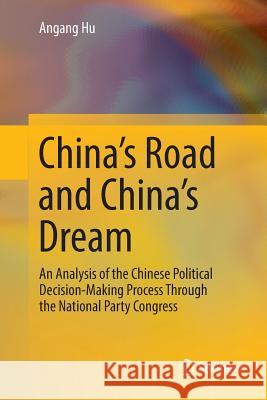China's Road and China's Dream: An Analysis of the Chinese Political Decision-Making Process Through the National Party Congress » książka
topmenu
China's Road and China's Dream: An Analysis of the Chinese Political Decision-Making Process Through the National Party Congress
ISBN-13: 9789811356315 / Angielski / Miękka / 2018 / 186 str.
China's Road and China's Dream: An Analysis of the Chinese Political Decision-Making Process Through the National Party Congress
ISBN-13: 9789811356315 / Angielski / Miękka / 2018 / 186 str.
cena 524,53
(netto: 499,55 VAT: 5%)
Najniższa cena z 30 dni: 443,35
(netto: 499,55 VAT: 5%)
Najniższa cena z 30 dni: 443,35
Termin realizacji zamówienia:
ok. 22 dni roboczych.
ok. 22 dni roboczych.
Darmowa dostawa!
Kategorie BISAC:
Wydawca:
Springer
Język:
Angielski
ISBN-13:
9789811356315
Rok wydania:
2018
Wydanie:
Softcover Repri
Ilość stron:
186
Waga:
0.28 kg
Wymiary:
23.39 x 15.6 x 1.07
Oprawa:
Miękka
Wolumenów:
01
Dodatkowe informacje:
Wydanie ilustrowane











